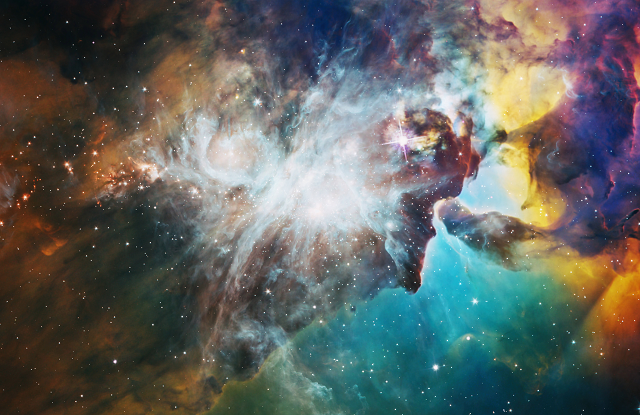Queen Mary scientists win Leverhulme grant for inter-school astrobiology initiative
Queen Mary University of London (QMUL) is delighted to announce that its inter-school astrobiology initiative has been awarded a prestigious Leverhulme Trust Research Project grant.

Led by Christopher Duffy from the Digital Environment Research Institute (DERI) and Thomas Haworth from the School of Physical and Chemical Sciences (SPCS), with involvement from Conrad Mullineaux from the School of Biological and Behavioural Sciences (SBBS), this project aims to explore the potential for extraterrestrial life.
Astrobiology, the study of life beyond Earth, is an emerging field in the United Kingdom. However, with recent developments such as the opening of the Leverhulme Centre for Life in the Universe in Cambridge and advancements in technology enabling the discovery and characterization of planets, as well as the search for bio signatures, its importance is growing rapidly. This Leverhulme grant is a significant achievement and demonstrates the recognition of Queen Mary University of London’s valuable contributions to the field.
The team's research focuses on identifying signatures of plant-like photosynthesis as a potential indicator of extraterrestrial life. However, most known exoplanets orbit stars that are potentially too faint and red to support Earth-like plants. Recognizing that a narrow view of photosynthesis limits our understanding, the project combines expertise in photosynthesis, biophysics, and astrophysics to investigate how the evolution of photosynthetic systems on Earth was influenced by the quality of available light. Furthermore, the team will explore whether similar systems could function under different suns and how they might appear to astronomers observing these distant worlds.
"We are thrilled to have been awarded this Leverhulme grant, which will enable us to further our research in astrobiology and contribute to the growing body of knowledge in this field," said Dr Christopher Duffy, Principal Investigator of the project. “With missions like the James Webb Space Telescope and the upcoming Habex, cutting edge astronomy is making measurement of conditions on exo-planets, and the possible signatures of life, a research priority. We want to make sure Queen Mary University of London is part of this effort, and this grant will help us establish exo-biology as a major research theme here.”
"This grant represents a significant milestone for our inter-school astrobiology initiative. It provides us with the resources and support to pursue our research more ambitiously and explore even more exciting ideas,” continues Dr Thomas Haworth, Co-investigator. “Astrobiology is an emerging field that is gaining global attention, and at Queen Mary University of London, we have the interdisciplinary expertise to make a real impact in this area, and in the last two years Dr Duffy and I have taken the first steps. I am excited about the potential for our project to contribute to our understanding of the universe and the possibility of extraterrestrial life."


